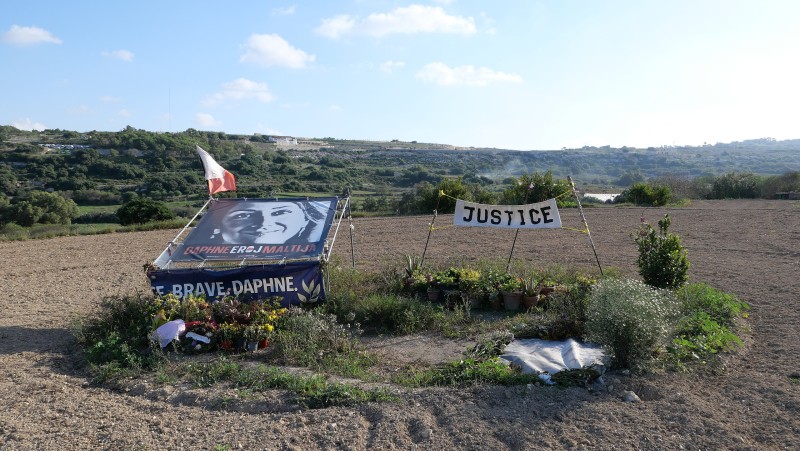Reported by
The bomb that killed Maltese journalist Daphne Caruana Galizia was a military-grade device designed to maximize lethality, the organization founded by her son said Wednesday in a Facebook post.
Citing expert testimony from the ongoing murder trial, the Daphne Caruana Galizia Foundation said the bomb that blew up her car contained 300 to 400 grams of high-powered material packed into a metal casing.
“It was designed to kill both the car driver and any passengers and would have killed or severely injured anyone standing close by,” the foundation said in a Facebook post. “Her death wasn't a tragedy. It was a cold, calculated crime.”
The device was described in court by Mario Cmarec, an explosives expert from Europol’s anti-terrorism section, who is testifying in the trial of Jamie Vella and Robert Agius, two men accused of supplying the bomb.
Daphne Caruana Galizia, a prominent investigative journalist who exposed corruption at the highest levels of Malta’s government, was killed instantly on October 16, 2017, when the bomb detonated under her car near her home, throwing her body into a nearby field.
In a separate post on Tuesday, the foundation disclosed new details about Keith Schembri, who was chief of staff to then-Prime Minister Joseph Muscat at the time of the murder. Schembri is facing criminal charges for allegedly leaking confidential information about the investigation to the alleged mastermind behind the assassination.
Schembri was arraigned in November 2024 on charges including perjury, swearing false oaths, obstruction of public officials, and breaching the Official Secrets Act. He has pleaded not guilty.
According to the Foundation, Schembri began passing sensitive information to the alleged mastermind within a week of the murder. He allegedly alerted the suspect when one of three hitmen arrested for carrying out the bombing began cooperating with police — a detail prosecutors argue could only have come from inside the prime minister’s office. Schembri also helped facilitate internal discussions about a potential presidential pardon for the hitman.
In January 2019, Schembri is said to have sent the alleged mastermind a court decree before it was officially issued. Police later uncovered that the two men had exchanged 149 encrypted calls via the Signal messaging app, with the recipient frequently changing the app’s disappearing message settings. Their communication continued until the suspect’s arrest in November 2019, when Schembri was forced to resign from public office. The suspect himself reportedly told police that Schembri had leaked information to him, the Foundation claimed.
The Foundation noted that Caruana Galizia’s family filed a criminal complaint against Schembri in December 2019.
Although he was not directly named in the Foundation’s latest post, businessman Yorgen Fenech is the suspect alleged to have masterminded the killing. He was arrested in November 2019 while attempting to flee Malta aboard his yacht and later charged with complicity in the murder. He denies the charges and has not yet stood trial. On Feb. 6 of this year, he was released on bail—five years after his arrest.
The journalist’s murder sparked mass protests, government resignations, and a public inquiry, which concluded that the Maltese state bore responsibility for creating a “culture of impunity” that enabled the killing.
Criminal proceedings against Schembri are ongoing.






